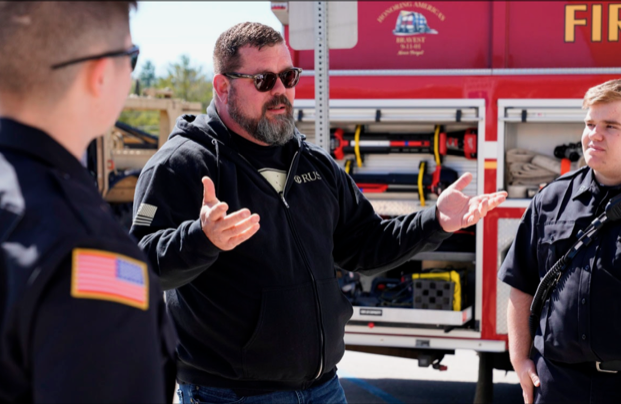
CHICAGO (WBBM NEWSRADIO) - Reg McCutcheon joined the United States Air Force right out of high school.
"I started out enlisted and then got commissioned," he recalled.
McCutcheon served in the military for 34 years and even spent seven months in Afghanistan. When he retired and returned to civilian life, he struggled with anger, trust and issues with connection.
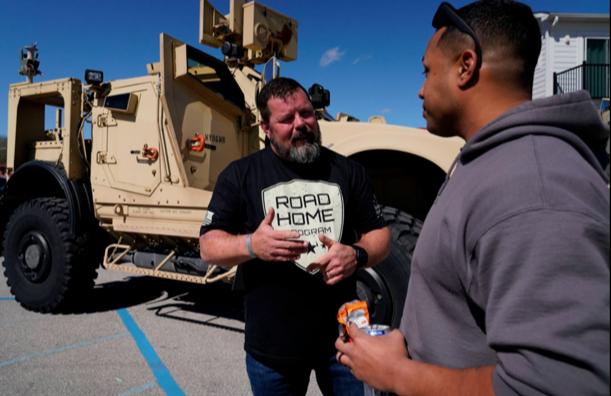
"I had my own issues with my combat experience," he said. "Things got out of hand for me. That's when I reached out to Road Home."
Through his work as a therapist, McCutcheon sent plenty of his fellow veterans to the Road Home, a Rush Medical Center program centered around veterans and their families. Now, he realized it was his turn.
"I was sending people to this program, but I never thought [it was] for me until I needed it," McCutcheon said.
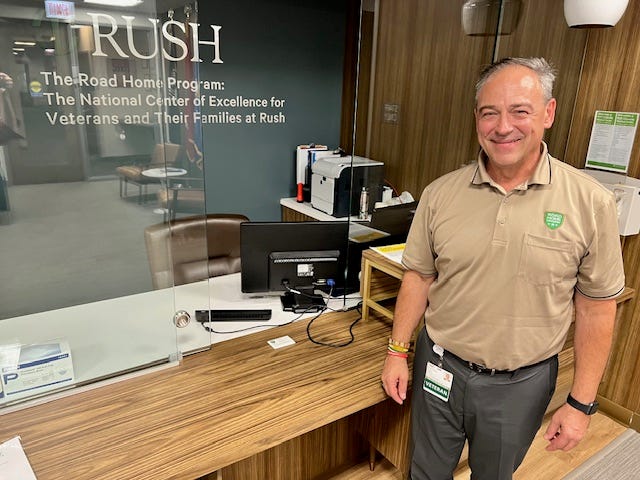
On the Rush Medical Center Campus, Road Home is a place where thousands of veterans have come for help with post-traumatic stress disorder (PTSD) and the transition back to civilian life.
"There's more veterans seeking help," said Will Beiersdorf, executive director of Road Home. "We never anticipated the war going on for 20 years in Afghanistan. In those early days, we saw the physical side, but as the war continued on, you're starting to see the invisible side, the post-traumatic stress, the other types of traumas from accidents. That was the genesis to starting this program. The biggest challenge for veterans is returning to civilian life."
Among the services offered from Road Home are a two-week outpatient program and a two-week intensive outpatient program.
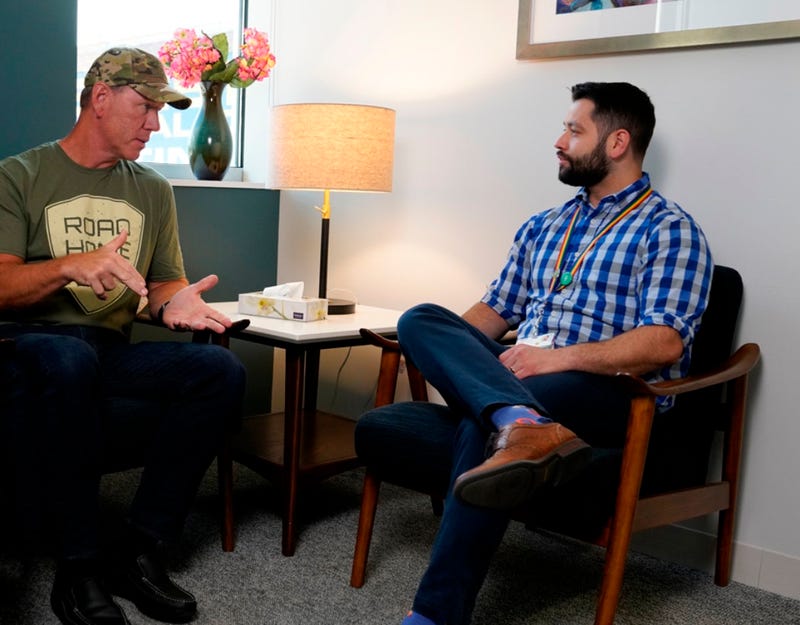
"We give six to eight months of therapy in two weeks," Beiersdorf said. "Over 90% of people complete it. It's proven very successful. We see a reduction in symptoms of post-traumatic stress almost cut in half. It really has had an impact."
Road Home employs 65 clinicians, psychiatrists and social workers and support staff. The program also offers yoga, art therapy, acupuncture and includes therapy for not only for the veteran but their families.
"We need to work with the families," said Beiersdorf. "If we give them the tools and help them, they then can help the veterans."
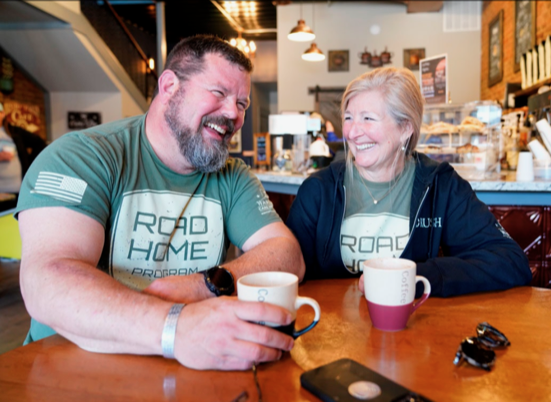
When McCutcheon was going through his adjustment to civilian life, he said no one wanted to be around him.
"Believe me, everyone feels the stress at home, even the dog feels it," he said. "I wasn't the same person coming back. Families take the brunt of the trauma too. How do we treat our families too?
McCutcheon said that while soldiers are taught to "be bulletproof" and see "death and destruction," they aren't taught how to handle the combat experience back at home.
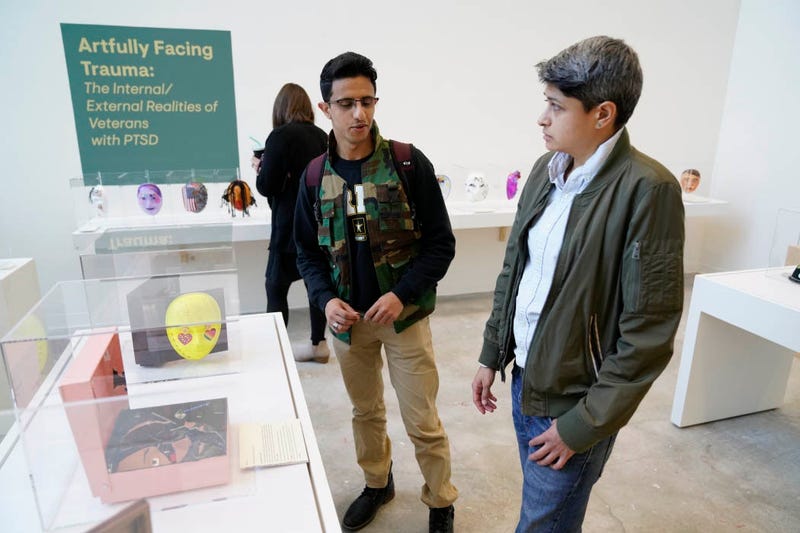
"How do we teach our veterans how to be citizens again,” he said. “We teach our soldiers how to survive in war, during war, preparing for war, but coming home is ... another level. It's not just about getting a job; it's about being a citizen again. It's a big deal, at least, it was for me."
McCutcheon added that there's a new generation of veterans who need help in different ways.
"What I find is, even now, as we backed out of Afghanistan, we now have a generation, a war that is generational," he said. "It's very complex. My grandpa went to war. My grandpa, my dad and [I] were all in the same theater. We all went to war. It creates a unique family dynamic, but it also creates a new way of understanding how we treat trauma and generational trauma and, when you add combat to that, it's pretty complex."
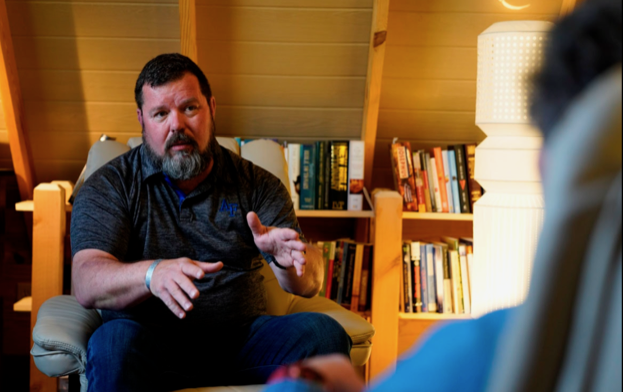
Road Home is a 501(c)(3) and offers programs free of charge and sees 2,300 people a year. For McCutcheon, the organization was a game changer.
"It made a world of difference for me, and it changed everything in my life. As a therapist, you can't always apply those tools to yourself. As much as I deal with everyone else’s, I had to finally come to terms and deal with mine. I didn't know how to heal myself. That physician ‘heal thyself’ logic doesn't always work," he laughed.
Road Home will be celebrating 10 years in 2024, Beiersdorf said. Since its founding, they've approached their work with thousands of veterans from all over the country with one goal.
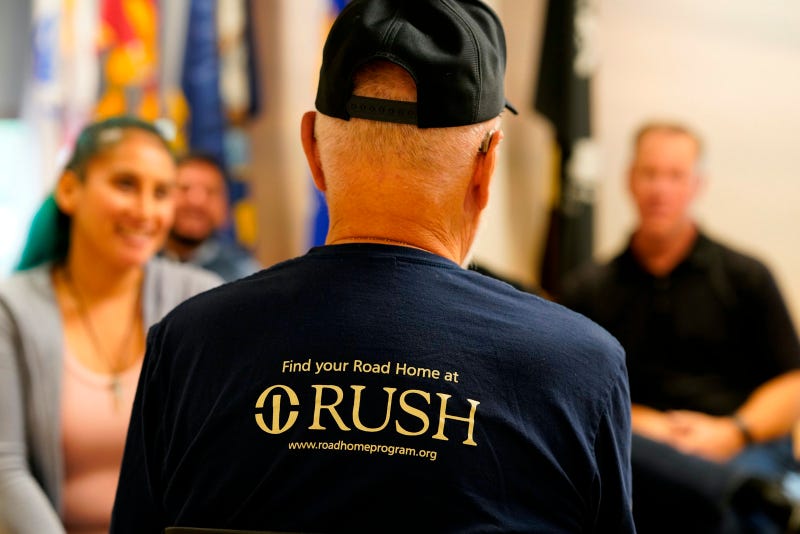
"How can we give men and women the tools to be resilient, to be hopeful and to have purpose in life?" Beiersdorf said. "When they come to us, they are often depressed, they are sad, they have anxiety, they are battling these traumas. We are trying to give them these tools to have a good life and to continue on."
For more information about the Road Home, log onto roadhomeprogram.org.
Listen to our new podcast Looped In: Chicago
Listen to WBBM Newsradio now on Audacy!
Sign up and follow WBBM Newsradio
Facebook | Twitter | Instagram
